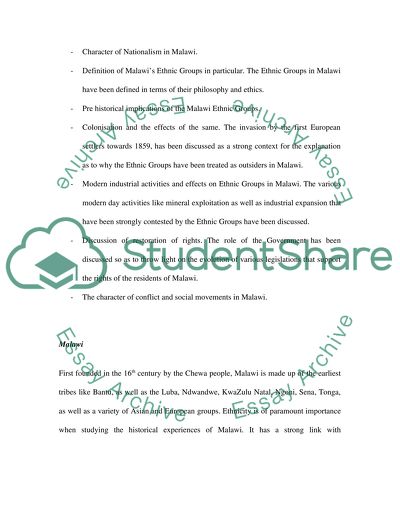Cite this document
(Nationalism in Malawi Case Study Example | Topics and Well Written Essays - 2000 words, n.d.)
Nationalism in Malawi Case Study Example | Topics and Well Written Essays - 2000 words. Retrieved from https://studentshare.org/politics/1544740-colonialhistorical-experience-of-the-african-state-malawi
Nationalism in Malawi Case Study Example | Topics and Well Written Essays - 2000 words. Retrieved from https://studentshare.org/politics/1544740-colonialhistorical-experience-of-the-african-state-malawi
(Nationalism in Malawi Case Study Example | Topics and Well Written Essays - 2000 Words)
Nationalism in Malawi Case Study Example | Topics and Well Written Essays - 2000 Words. https://studentshare.org/politics/1544740-colonialhistorical-experience-of-the-african-state-malawi.
Nationalism in Malawi Case Study Example | Topics and Well Written Essays - 2000 Words. https://studentshare.org/politics/1544740-colonialhistorical-experience-of-the-african-state-malawi.
“Nationalism in Malawi Case Study Example | Topics and Well Written Essays - 2000 Words”, n.d. https://studentshare.org/politics/1544740-colonialhistorical-experience-of-the-african-state-malawi.


